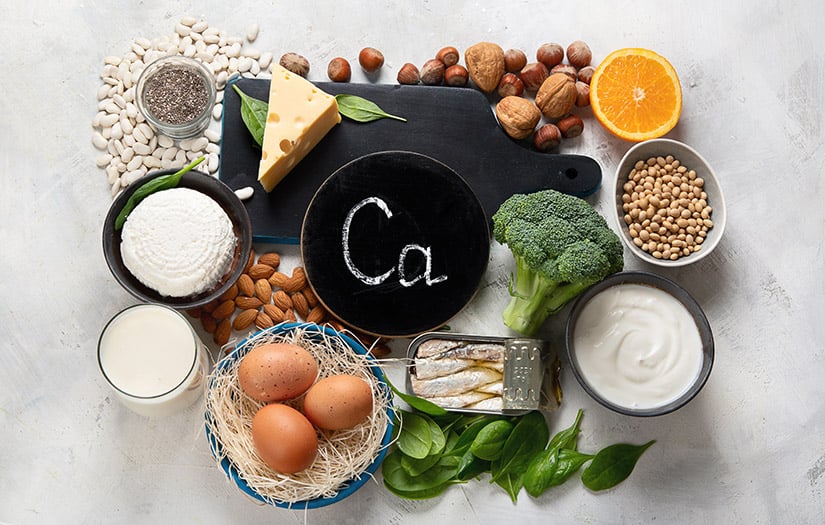- Empty cart.
- Continue Shopping
The Significance of Calcium in Women’s Bone Health

Bone health is a critical aspect of overall well-being, particularly for women. Calcium, a vital mineral, plays a pivotal role in maintaining strong bones and preventing osteoporosis—a condition characterized by weakened bones.
Understanding Calcium’s Role
1. Building and Maintaining Bones
Calcium is a primary component of bones. It provides the structural integrity needed to support the body and withstand physical stressors.
2. Regulating Muscle Function
Calcium is essential for muscle contraction and relaxation, including the heart muscle. It ensures proper functioning of the cardiovascular system.
Calcium Requirements for Women
3. Different Life Stages, Different Needs
Women’s calcium requirements vary at different stages of life. Adolescents, pregnant women, and postmenopausal women have specific needs to support growth, fetal development, and bone preservation, respectively.
4. Postmenopausal Bone Health
After menopause, declining estrogen levels can lead to increased bone loss. Adequate calcium intake, along with other nutrients and weight-bearing exercises, helps mitigate this risk.
The Role of Vitamin D
5. Enhancing Calcium Absorption
Vitamin D facilitates the absorption of calcium in the intestines. Women should ensure they get sufficient sunlight exposure and dietary sources of vitamin D.
Dietary Sources of Calcium
6. Dairy Products
Milk, yogurt, and cheese are rich sources of calcium. Opt for low-fat or non-fat varieties to limit saturated fat intake.
7. Leafy Greens and Other Vegetables
Certain dark leafy greens like kale, collard greens, and broccoli are good plant-based sources of calcium.
8. Fortified Foods
Many cereals, plant-based milk alternatives (like almond or soy milk), and juices are fortified with calcium.
Supplementation: When Is It Necessary?
9. Consulting a Healthcare Professional
In some cases, supplementation may be necessary, especially for individuals with specific dietary restrictions or medical conditions that hinder calcium absorption. Consult a healthcare provider for personalized recommendations.
Lifestyle Factors Affecting Calcium Absorption
10. Limiting Caffeine and Sodium Intake
Excessive caffeine and sodium intake can interfere with calcium absorption. Moderation in consumption of these substances is advised.
11. Avoiding Smoking and Excessive Alcohol
Smoking and excessive alcohol consumption are linked to decreased bone density. Minimizing or quitting these habits supports overall bone health.
Weight-Bearing Exercise
12. Complementing Calcium Intake with Exercise
Weight-bearing exercises like walking, jogging, and weightlifting stimulate bone remodeling, enhancing bone density and strength.
Regular Bone Density Testing
13. Monitoring Bone Health
Regular bone density tests, especially for postmenopausal women, provide critical information about bone health status and can guide interventions if needed.
Conclusion: Nurturing Strong Bones for a Lifetime
Understanding the significance of calcium in women’s bone health empowers individuals to take proactive steps towards preserving their skeletal strength. By incorporating calcium-rich foods, getting adequate vitamin D, and adopting a healthy lifestyle, women can build and maintain strong bones throughout their lives. Remember, investing in bone health today lays the foundation for a vibrant and active future.








